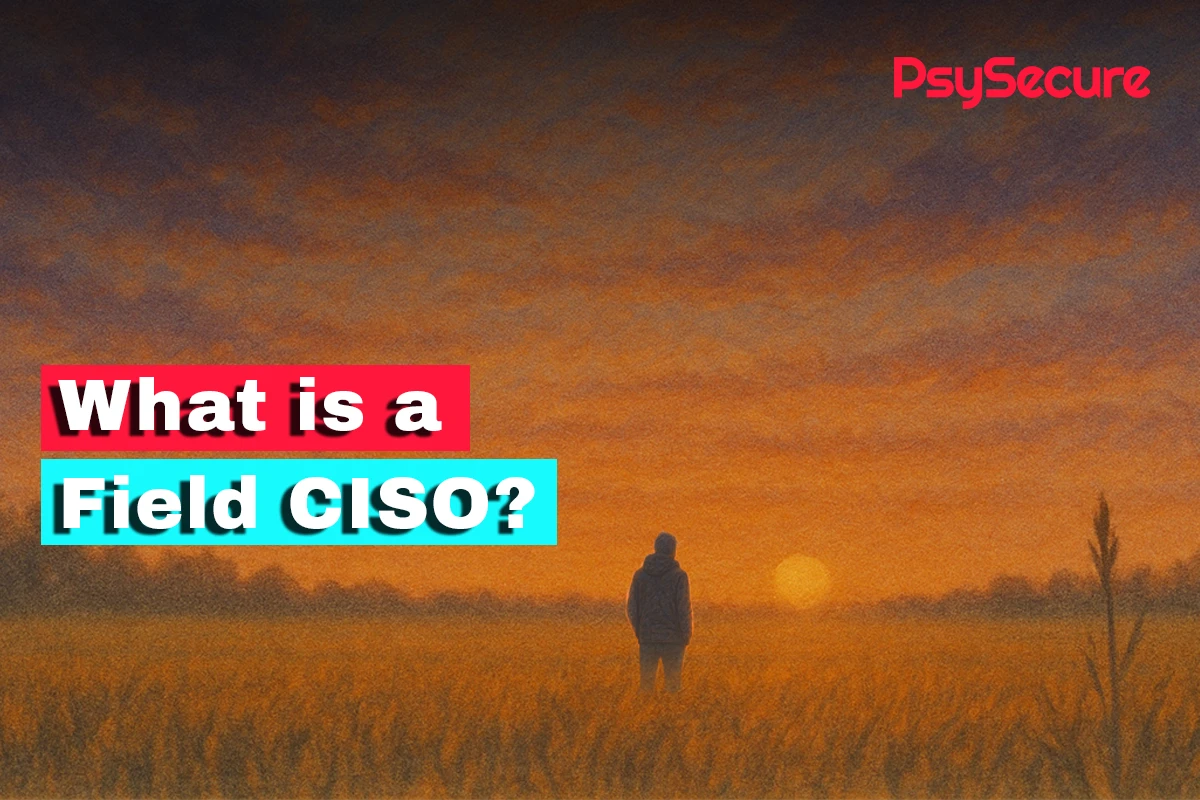I’ve been working in IT, cloud architecture, and cybersecurity for almost 30 years now, and have spent the past 3 years as a Field CISO. Prior to that I was a Principal Security Architect, but never an actual CISO, so what gives? Do you need to have prior experience as a CISO to become a Field CISO? Not necessarily, and the path isn’t always straightforward. The leap from architect to Field CISO requires more than technical prowess alone. It demands a fundamental shift in perspective, helping organizations see the bigger picture, and I originally secured the role through a promotion since I was already doing just that.
CISOs themselves come from wildly diverse backgrounds, from former CIOs to risk officers, technical architects, and even lawyers. The strength of the profession lies in this diversity of thought, not in standardizing credentials or academic frameworks.
Which brings me to another point I’d like to make: Cybersecurity is needed because the adversary doesn’t operate within a strict academic framework of must-haves, since they, by definition of a hacker, break and bend the rules to exploit weaknesses in systems that are not always apparent.
In a world where adversaries constantly evolve their tactics, the CISO’s effectiveness often relies less on formal education and more on adaptable thinking. While academic knowledge provides a foundation, it’s the ability to rise above rigid frameworks, to see patterns across systems, that truly distinguishes exceptional security leadership.
Field CISO
The Field CISO role emerged from a growing need for seasoned security professionals who can translate often deep technical concepts into business value. As a Field CISO I bridge these worlds, speaking to technical teams, but also to executives which is the language of risk, metrics, and ROI.
I was listening to a podcast about the role of a Field CISO, and someone commented saying that operational CISOs should have a professional license as a doctor would, so the title of CISO can’t be misused in titles such as Field CISO, but I have to disagree. I will assume here that professional certifications such as the CISSP are a requirement for both operational CISOs and Field CISOs alike, but a license? For starters, many CISOs don’t even report to the CEO or present at board meetings, which, in my opinion, they should, so let’s address that first.
As a Field CISO, my days are spent at executive roundtables, presenting keynotes, or other forums, and I may be required to talk about Gen AI and security one day, and governance and regulations the next. As the ‘Field’ part implies, I’m on the road a lot, at airports, hotels, events, and client sites. This is a luxury many operational CISOs just can’t afford or justify, after all they have a security function to run.
Lesser Knowns about the Field CISO
What comes with all that travel is the rare gift of hearing the perspective of other CISOs from many different organizations and industries. This gives me insights that an operational CISO just doesn’t always have time to gather. While they’re deep in the trenches of their own security program, I’m cross-pollinating ideas from financial services to healthcare to manufacturing. I’m seeing which security controls actually work in practice versus which ones look good on compliance checklists.
This is almost like intelligence gathering, as it provides a unique visibility that allows me to steer the ship as a software vendor. When I bring these frontline CISO perspectives back to our product team, I’m able to deliver critical market intelligence that shapes our roadmap. By enabling our sales teams to understand not only the language of the CISO but also their evolving pain points, I help ensure our product strategy meets the actual needs of our customers, not just what we think they want. The feedback loop from field to product development is perhaps the most valuable yet underrated aspect of the Field CISO role, translating customer challenges into solutions before customers even realize they need them.
So here is my definition, along with that of a Field CTO for comparison!
What is a Field CISO?
A Field CISO is a customer-facing cybersecurity executive who acts as a bridge between a vendor and its clients. Unlike a traditional CISO focused on internal security, a Field CISO provides strategic guidance, evangelizes security solutions, and helps clients align products with their risk and compliance needs.
Think: security advisor + sales engineer + trusted partner.
What is a Field CTO?
A Field CTO is a technical expert who represents a tech company to customers, partners, and the market. Their role blends deep technical knowledge with business acumen, advising clients, influencing product direction, and supporting sales by translating complex tech into strategic value.
Think: technologist + sales engineer + product strategist.
